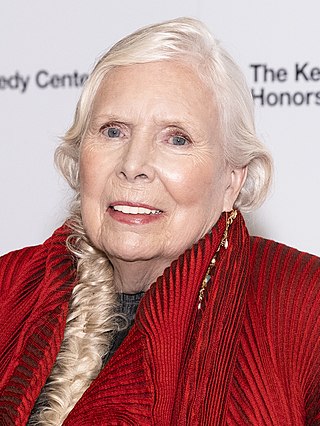
Roberta Joan "Joni" Mitchell is a Canadian-American singer-songwriter, multi-instrumentalist, and painter. She is widely considered one of the greatest singer-songwriters of all time. As one of the most influential singer-songwriters to emerge from the 1960s folk music circuit, Mitchell became known for her personal lyrics and unconventional compositions which grew to incorporate pop and jazz elements. She has received many accolades, including eleven Grammy Awards and induction into the Rock and Roll Hall of Fame in 1997. Rolling Stone called her "one of the greatest songwriters ever", and AllMusic has stated, "Joni Mitchell may stand as the most important and influential female recording artist of the late 20th century."
Sister Sledge is an American musical vocal group from Philadelphia, Pennsylvania. Formed in 1971, the group consisted of sisters Debbie, Joni, Kim, and Kathy Sledge. The siblings achieved international success at the height of the disco era. In 1979, they released their breakthrough album We Are Family, which peaked at number three on the Billboard 200 and included the 1979 US top-10 singles "He's the Greatest Dancer" and "We Are Family". "We Are Family" earned a Grammy Award nomination for Best R&B Performance by a Duo or Group with Vocal.
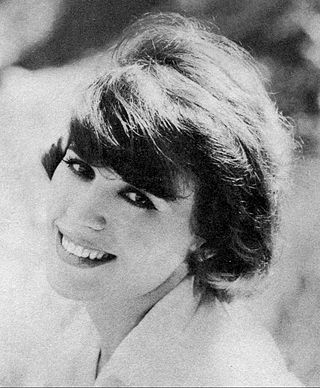
Giovanna Carmella Babbo, known professionally as Joni James, was an American singer of traditional pop.
"A Case of You" is a song by Joni Mitchell, from her 1971 album Blue.

"Carey" is a song from the 1971 Joni Mitchell album Blue. It was inspired by her time spent with Cary Raditz, living with a cave-dwelling hippie community at Matala, on the Greek island of Crete.
"Around the World" is the theme tune from the 1956 movie Around the World in 80 Days. In the film, only an instrumental version of the song appeared, although the vocal version has become the better known one. The song was written by Harold Adamson and Victor Young; Young died in 1956, several weeks after the film's release, and he received the Academy Award for Best Music, Scoring of a Dramatic or Comedy Picture posthumously. Young's orchestral version was a #13 hit on the Billboard charts in 1957. The recording by Bing Crosby was the B-side of the Victor Young version in 1957, on Festival SP45-1274 in Australia, and was a joint charting success.
"How Important Can It Be?" is a popular song written by Bennie Benjamin and George David Weiss, and published in 1955.
"Keep It a Secret" is a popular song written by Jessie Mae Robinson and published in 1952.
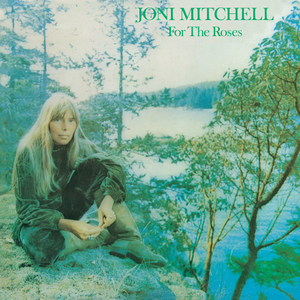
For the Roses is the fifth studio album by Canadian singer-songwriter Joni Mitchell. It was released in November 1972, between her two biggest commercial and critical successes—Blue and Court and Spark. In 2007 it was one of 25 recordings chosen that year by the Library of Congress to be added to the National Recording Registry.
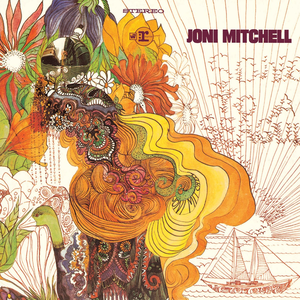
Song to a Seagull is the debut studio album by Canadian singer-songwriter Joni Mitchell. Produced by David Crosby, the album was recorded in early 1968 at Sunset Sound and released in March 1968 by Reprise Records.

Clouds is the second album by Canadian singer-songwriter Joni Mitchell, released on May 1, 1969, by Reprise Records. After releasing her debut album, Song to a Seagull (1968), to considerable exposure, Mitchell recorded Clouds at A&M Studios in Hollywood. She produced most of the album and painted a self-portrait for its cover artwork. Clouds has subtle, unconventional harmonies and songs about lovers, among other themes.
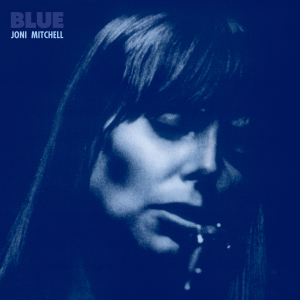
Blue is the fourth studio album by Canadian singer-songwriter Joni Mitchell, released on June 22, 1971, by Reprise Records. Written and produced entirely by Mitchell, it was recorded in 1971 at A&M Studios in Hollywood, California. Created just after her breakup with Graham Nash and during an intense relationship with James Taylor, Blue explores various facets of relationships from love on "A Case of You" to insecurity on "This Flight Tonight". The songs feature simple accompaniments on piano, guitar and Appalachian dulcimer. The album peaked at number 3 on the UK Albums Chart, number 9 on the Canadian RPM Albums Chart and number 15 on the Billboard 200.
"If I Were a Bell" is a song composed by Frank Loesser for his 1950 musical Guys and Dolls.
"Too Marvelous for Words" is a popular song written in 1937. Johnny Mercer wrote the lyrics for music composed by Richard Whiting. It was introduced by Wini Shaw and Ross Alexander in the 1937 Warner Brothers film Ready, Willing, and Able, as well as used for a production number in a musical revue on Broadway. The song has become a pop and jazz standard and has been recorded by many artists.
"Both Sides, Now" is a song by Canadian singer-songwriter Joni Mitchell. One of the first recordings is by Judy Collins, whose version appeared on the US singles chart during the fall of 1968. The next year it was included on Mitchell's album Clouds, and became one of her best-known songs. It has since been recorded by dozens of artists, including Dion in 1968, Clannad with Paul Young in 1991, and Mitchell herself, who re-recorded the song with an orchestral arrangement on her 2000 album Both Sides Now.
"River" is a song by Canadian singer songwriter Joni Mitchell, from her 1971 album Blue. Written on piano, it has become a standard for artists in many music styles, and has become popular as Christmas music. Although never released as a single, "River" holds second place among Mitchell's songs most recorded by other artists. In 2021, it was ranked at No. 247 on Rolling Stone's "Top 500 Best Songs of All Time".

Let There Be Love is Joni James debut album, recorded in 1953 and released by MGM Records at the end of the year. It was released in a four-disc 10-inch 78-rpm record box, in both a two-disc 7-inch 45-rpm extended-play foldout album and a four-disc 45-rpm regular-play box and on a 10-inch 33⅓-rpm album. The serial number, 222, coincidentally included James's lucky number, "22," which appeared in many of her record serial numbers all over the world.
"How Do You Stop" is a song written by Dan Hartman and Charlie Midnight and recorded by James Brown. It appeared on Brown's 1986 album Gravity and was released as a single which charted at number 10 on the US R&B chart. Brown also performs the song on his 1989 album Soul Session Live.

"You Can Close Your Eyes" is a song written by James Taylor which was released on his 1971 album Mud Slide Slim and the Blue Horizon. It was also released as the B-side to his #1 single "You've Got a Friend". It has often been described as a lullaby. It was initially recorded by his sister Kate Taylor for her 1971 album Sister Kate. The song has been covered by many artists, including Carly Simon, Linda Ronstadt, Maureen McGovern, Richie Havens, Sheryl Crow, Sting, Eddie Vedder with Natalie Maines, and the King's Singers.
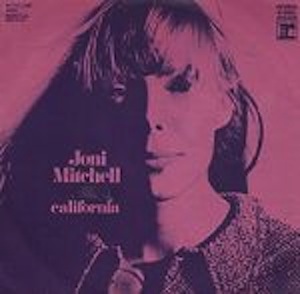
"California" is a song written by Joni Mitchell that first appeared on her 1971 album Blue. It was also released as the second single from the album, as a follow-up to "Carey".










